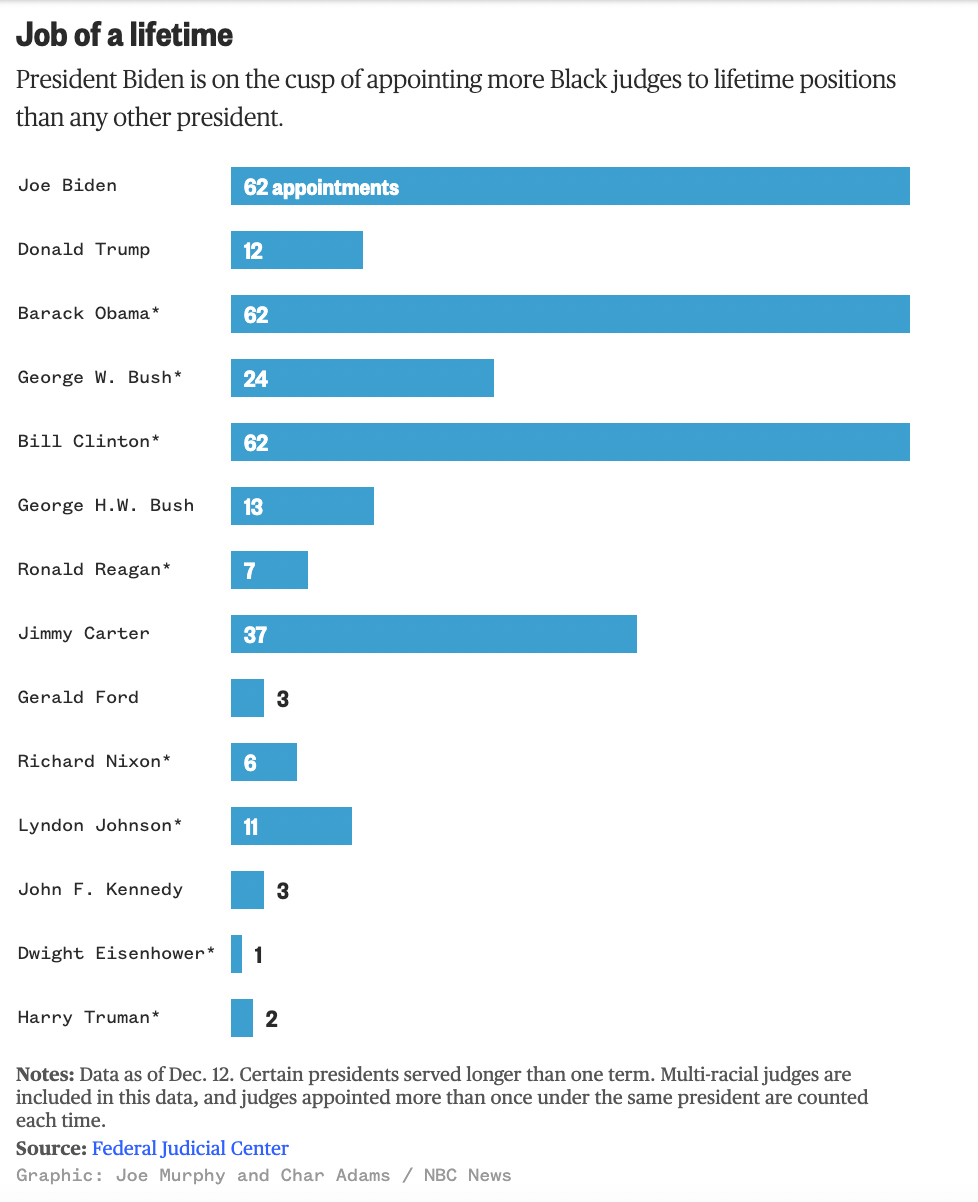WASHINGTON, DC, USA — As President Joe Biden’s term nears its end, he is poised to leave an indelible mark on the federal judiciary, appointing more judges of colour than any president before him.
Among his most notable achievements is the confirmation of 40 Black women to lifetime federal judgeships—more in a single term than any other president.
On Monday, December 9, 2024, the Senate confirmed Tiffany Johnson to the Northern District of Georgia, cementing her place as the 233rd Biden appointee to the federal bench.
Of these, approximately 60% are people of colour, according to figures provided by the White House.
Benjamin Cheeks and Serena Raquel Murillo, nominees for U.S. district judgeships, await Senate confirmation.
Should Cheeks be confirmed, Biden will have appointed 63 Black federal judges—breaking the record of any presidency, according to the Leadership Conference on Civil and Human Rights.
“President Biden is proud to have strengthened the judiciary by making it more representative of the country as a whole, and that legacy will have an impact for decades to come,” White House communications director Ben LaBolt said in an emailed statement.
Reshaping the Federal Judiciary
Biden’s judicial appointments reflect his long-stated goal of reshaping the predominantly white, male federal judiciary.
His nominees include a record number of former public defenders, civil rights attorneys, and lawyers representing workers.
Over half of his appointees have been women, and his picks have set numerous firsts, including several LGBTQ judges and the first Black woman to serve on the U.S. Supreme Court, Justice Ketanji Brown Jackson.

“Biden has been a leader in terms of appointing Black judges,” said Dedrick Asante-Muhammad, president of the Joint Center for Political and Economic Studies.
“These appointments will have long-term impacts, at least in terms of representation. This is showing the public that the inclusion of Black judges should be natural, regular.”
Experts argue that a diverse judiciary improves decision-making and fosters trust in the legal system.
“When you have more judges that have different perspectives because they’ve worked on different types of issues or come from different communities, it improves decision-making,” said Lena Zwarensteyn, senior director of the fair courts program at the Leadership Conference on Civil and Human Rights.
Senate Push to Confirm Nominees
With Senate Democrats pushing to confirm as many nominees as possible before the Republican-controlled Senate takes over in January, several circuit court nominees remain in limbo.
These include Adeel Abdullah Mangi (3rd Circuit), Julia M. Lipez (1st Circuit), Karla M. Campbell (6th Circuit), and Ryan Young Park (4th Circuit).
“These courts make decisions that affect the lives of hundreds of millions of people,” said Marge Baker, executive vice president at People For the American Way. “They decide questions about voting rights, consumer rights, workers’ rights, climate change, and abortion.”
Senate Majority Leader Chuck Schumer, D-N.Y., reiterated the urgency of confirming Biden’s nominees. “This Senate will keep working to confirm more of President Biden’s excellent judicial nominees,” he wrote in a post on X last month.
A Lasting Legacy
Biden’s appointments have been lauded as transformative.
Elliot Mincberg, counsel for People For the American Way, described their impact as “enormous,” improving justice for Americans across the country.
Zwarensteyn characterised Biden’s efforts as a “tremendous and often not-discussed part” of his legacy.
“These appointments are about more than representation; they shape how justice is delivered in America,” Zwarensteyn said.
As Biden’s term concludes, his reshaped judiciary is set to influence key issues for decades, marking a significant milestone in the nation’s legal and political history.







